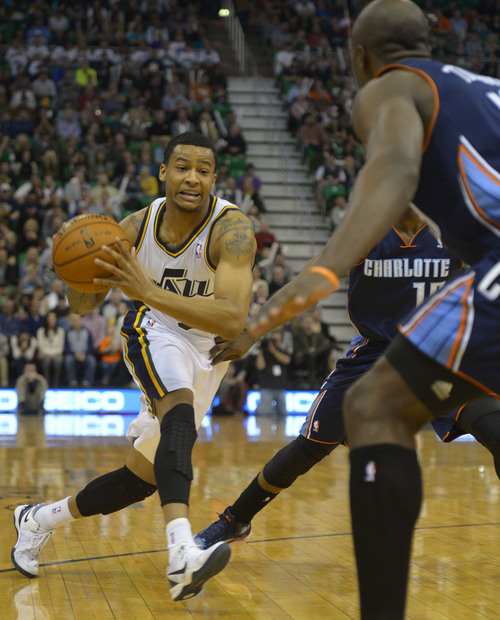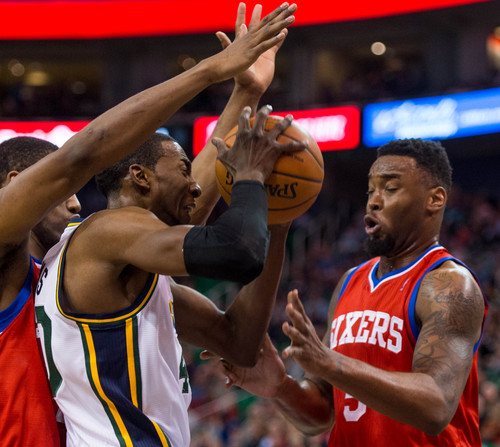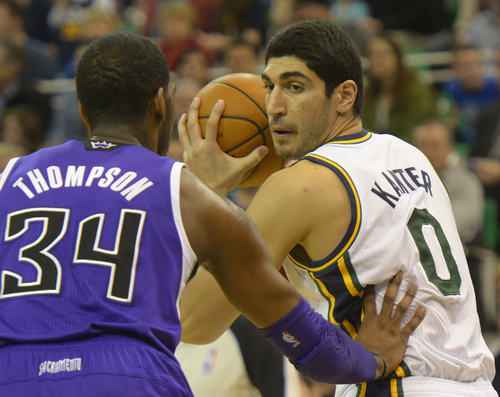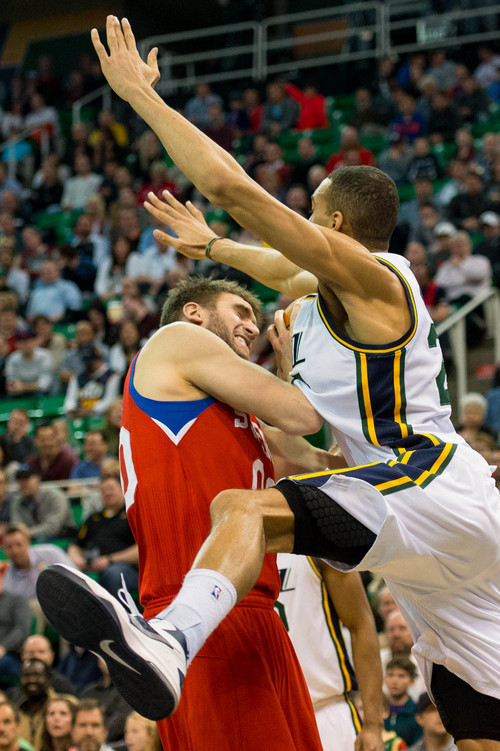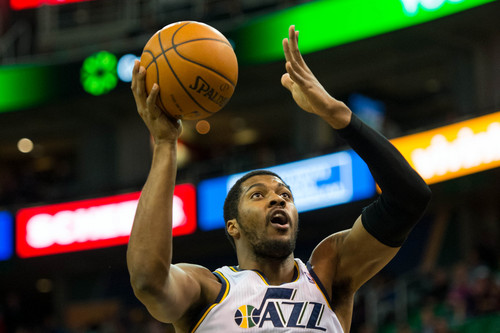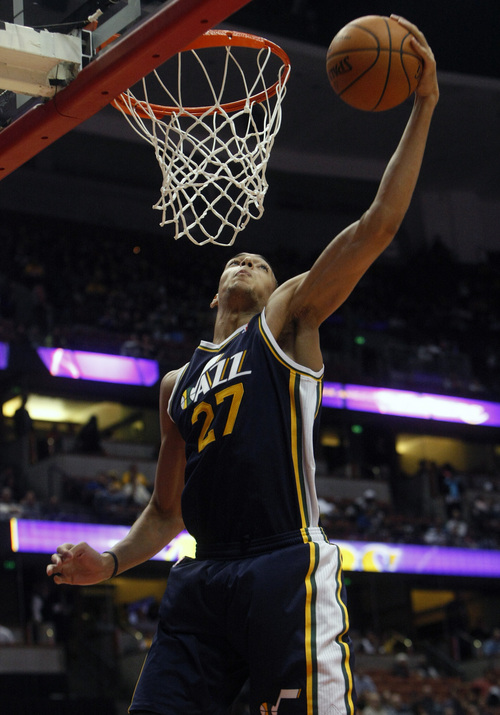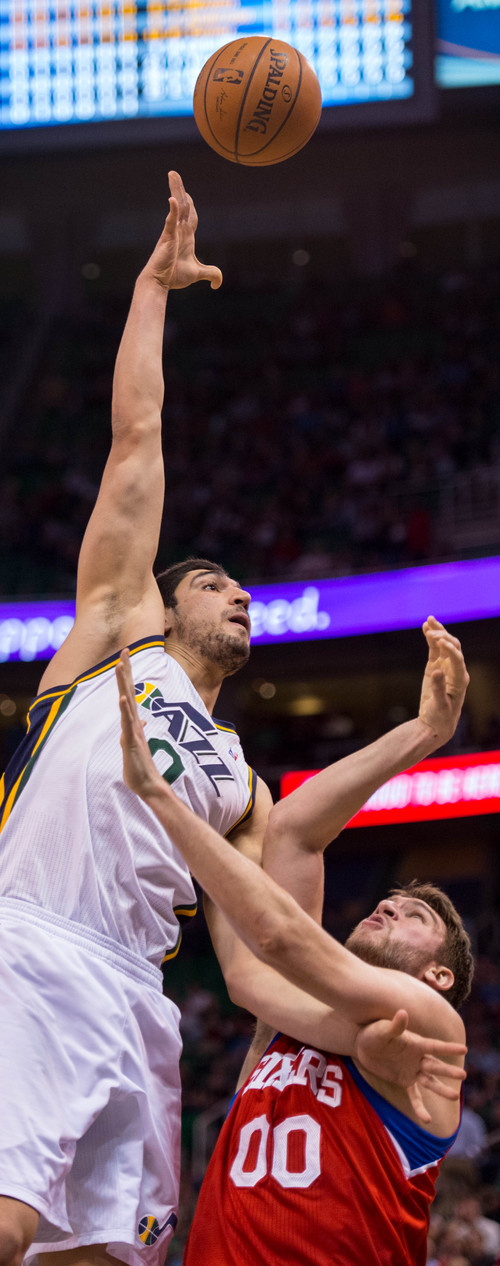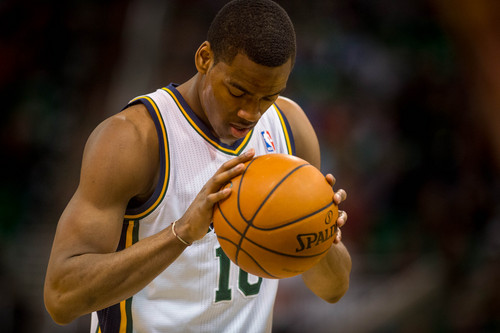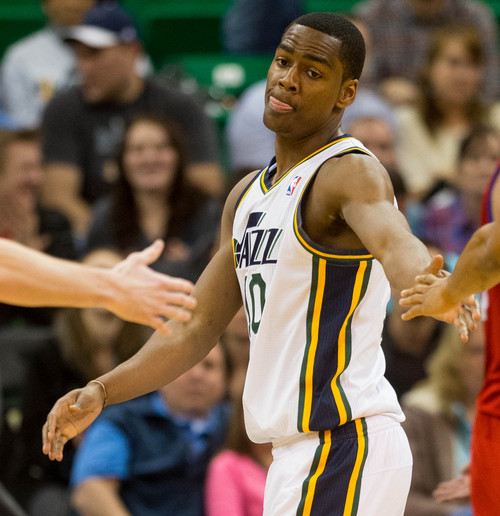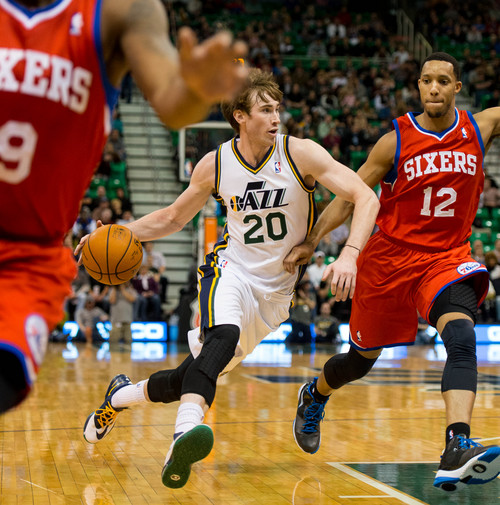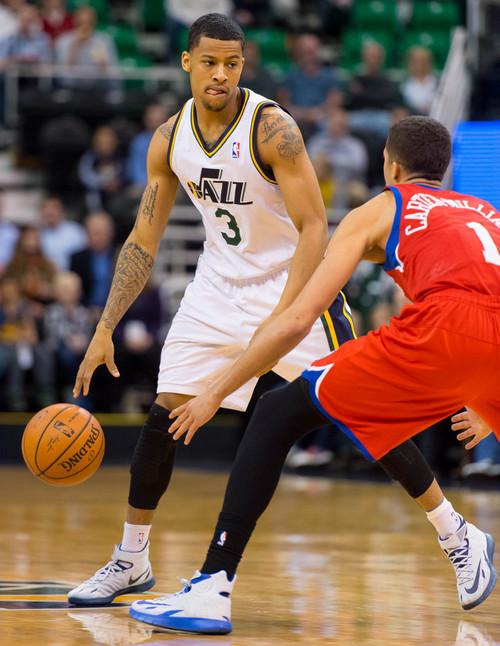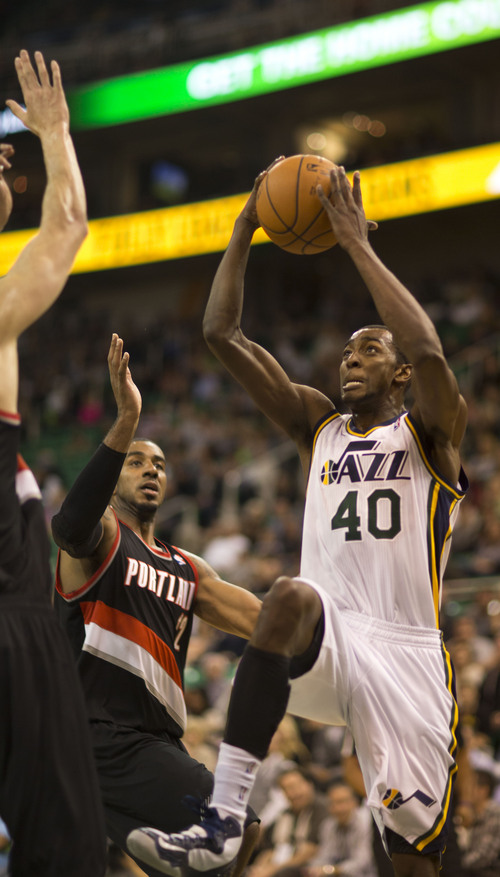This is an archived article that was published on sltrib.com in 2014, and information in the article may be outdated. It is provided only for personal research purposes and may not be reprinted.
At the All-Star break, the Jazz are still teetering on a high wire.
They're balancing the same two contradictory components to their future success.
They want to build through the draft, which is a euphemism for losing enough games to get a high lottery pick. Tyrone Corbin, who is in the last year of his contract, may not want that, but, make no mistake, that's what the greater Jazz want.
It's not their fault, it's just the way the NBA is constructed, particularly for a small-market team.
The Jazz can't come out and say it all plain because that's not what the Jazz do. But it's what they're hoping for. And for good reason. Think of it this way: Is it better in a lost season for them to win a few extra games and mess over their shot at drafting Jabari Parker or is it better for them to lose and increase their chances of getting their man and barreling forward to real contention?
The other component is where that question gets complicated, where even the Flying Wallendas might fall off that high wire.
The Jazz want to develop their young players. They want to discover who can prosper in more central roles, which guys can be stars in a league that requires multiple stars to sniff a title. They want to find out which of their players are worthy of large contract extensions.
So, they are stuck high up on that tight rope, trying not to do a double-gainer.
Even in a best-case scenario, one where the youngsters improve and the Jazz still lose, those players must eventually learn to win. That's one of the reasons their recent home victory over the Heat was so stirring for them. The youngsters are busting it hard to get better, and with no reward in the win column, that upward climb can become disheartening. One drawback in that win was that veterans Marvin Williams and Richard Jefferson played prominent roles in earning it. Even in the postgame celebration, Jefferson said the growth of the youngsters is Priority 1.
Since, other than losing, that's what this season is about, let's pause to grade that progress among the guys who could be the bedrock of the Jazz's future. It's not easy because the road has been so uneven for almost all of them. Some could receive an A and an F.
Derrick Favors • Although interrupted by that nagging hip strain, the 22-year-old center/power forward has become one of the team's two most important players. Low-post defense is his biggest contribution, especially as he learns the nuances of that role among teammates who too often get beat. Favors averages 13 points, nine rebounds and 1.4 blocks in 31 minutes. All of those numbers can and should go higher. His offense has shown slight improvement, with him shooting the ball better (51 percent) and attacking the rim off the pick and roll. Grade: B.
Trey Burke • The other most important. Yeah, he's collided into the rookie wall, but the 21-year-old point guard seems to have enough pluck to fight through it. He's getting 12 points and six assists a game in 30 minutes. His biggest weakness is efficiency in shooting, hitting just 37 percent. Burke would benefit from finding a way to drive to the basket more, where he could increase that percentage or get fouled. He rarely gets to the line, even though he's the best free-throw shooter on the team, making 90 percent. Grade: B-minus.
Gordon Hayward • The 23-year-old has strained under his increased workload, playing more than anyone (36 minutes per) and shooting more (14 attempts per). Hayward averages 16 points, five rebounds and five assists. He's a two-way player whose problems center on sloppy stretches — he averages nearly three turnovers — and makes just 40 percent of his shots. He's an algebra student in a calculus class. Needs consistency. Grade: C-minus.
Alec Burks • He's given the Jazz a lift off the bench, scoring 13 points in 27 minutes. The 22-year-old gets fouled more than any other Jazz player and makes 74 percent from the line. Some of those field-goal attempts are wild, but the athletic Burks hits 44 percent from the floor. At times, he's looked as though he belongs in the D League. At others, he's looked unstoppable. His defense is a liability. Grade: B-plus.
Enes Kanter • At 21, the big man sometimes fogs over at the defensive end. He averages 12 points in 25 minutes, but features a unique combination of soft shooting and bullish strength. He could be a longtime force for the Jazz — if he gains competitive awareness and dials in playing alongside Favors. The two have struggled on the floor together. Grade: Incomplete.
Jeremy Evans • The 26-year-old high-flyer is included here because he's finally getting more playing time (19 minutes per) and his offensive game has grown past dunks by way of efficient midrange shooting. He's hitting 54 percent of his shots. Grade: B.
Rudy Gobert • An intriguing project with ridiculous dimensions who must work hard and stay hungry. Grade: A-minus.
GORDON MONSON hosts "The Big Show" with Spence Checketts weekdays from 3-7 p.m. on 97.5 FM/1280 and 960 AM The Zone. Twitter: @GordonMonson.


